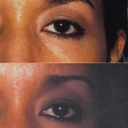Male to Female Surgery: FAQ
Despite growing understanding of transgender individuals and their needs, there’s still not a lot of information available online. This is especially true when it comes to plastic surgery options. As an MTF patient, you may be researching breast enlargement, but most of what you’ll find on the Internet is targeted toward women. The information can be helpful, but it probably won’t fully address your concerns.
Along with reading this FAQ we’ve prepared, as well as anything else applicable, you may want to schedule a consultation appointment with Dr. Elliot Jacobs. Dr. Jacobs will enjoy meeting you and sharing information, and he’ll answer all the questions you have. There will be no pressure to make a decision, and even if you choose not to have surgery, the two of you will benefit from meeting.
In the meantime, here are some questions MTF top surgery patients often have.
-
How will I choose the right breast implant?
This all-important question is on the mind of every breast augmentation patient we meet. It’s a topic we spend quite a bit of time on in most consultations—we’ll be sure you find out what you need to know to make good decisions. The ultimate choice depends on two leading factors: your goals and your body type. Dr. Jacobs will show you a variety of implants, help you try on sizers and make recommendations to assist you.
-
Are silicone implants as safe as saline implants?
Today’s silicone implants are filled with what’s called a “cohesive gel.” This means that even if an implant shell is compromised, the filling stays put. The days of liquid silicone that could leak out of implant shells and breast pockets are long gone.
-
How will I know if an implant ruptures?
If you choose saline implants and suffer a rupture down the road, the sterile salt water will leak out into the body and be harmlessly absorbed. It will be obvious that one of your implants has deflated and you’ll need to schedule replacement.
Silicone implant rupture is more difficult to detect, since the filling does not migrate. The FDA recommends patients who choose silicone implants have MRI tests periodically to check the integrity of the implant shells.
-
What if I decide I need larger or smaller implants later on?
Patients do sometimes decide to swap their implants for smaller or larger models, and a second surgery is certainly possible. If you decide to go much smaller in the future, you may have excess skin to consider. If you decide to go larger, you’ll want to be sure this is a good move for your frame and skin. You can always arrange another consultation with Dr. Jacobs to discuss these possibilities.
-
Is breast augmentation reversible if I change my mind?
Yes, breast enlargement is reversible, but your chest will not look like it did before your implants were placed. Your skin will have stretched and you may need excision, and you will have scars. It is in your best interests to be certain man to woman top surgery is a good move for you.
-
What if I want larger areolas?
Female areolas do tend to be bigger than male areolas, it’s true. But enlarging yours surgically would probably not be worth the tradeoff in scars. If larger areolas are important to you, we’d suggest you look into tattooing.
-
I’ve heard about fat transfer to augment breasts—is this possible for me?
Fat transfer is an interesting technique that’s becoming more useful as plastic surgeons gain experience with relocating fat cells. We can discuss this possibility during your consultation, but understand that in the vast majority of cases we still believe breast implants are the way to go. This is because there are limitations in using fat tissue, such as the near certainty that some cells will not survive and the inability to bring about a big increase in breast volume. Also, many MTF patients do not have sufficient fat tissue available to enlarge their breasts significantly.
-
Will my risk of breast cancer be elevated after surgery?
Breast implants do not impact the risk of breast cancer one way or another. Your specific risk depends on other factors, possibly including hormone therapy. Please speak with your primary care doctor about this.
We’re sure you’ll have many more questions about the MTF top surgery you’re considering. You may find some of them answered elsewhere on our website, such as on our page covering fees and financing, and the section about our modern surgical suite. If you have other basic questions, please send us an email.
If you’re ready to learn about the changes male to female surgery could bring about for you, it may be time for a consultation. Call us for an appointment at 212-570-6080, we’d love to meet you!







